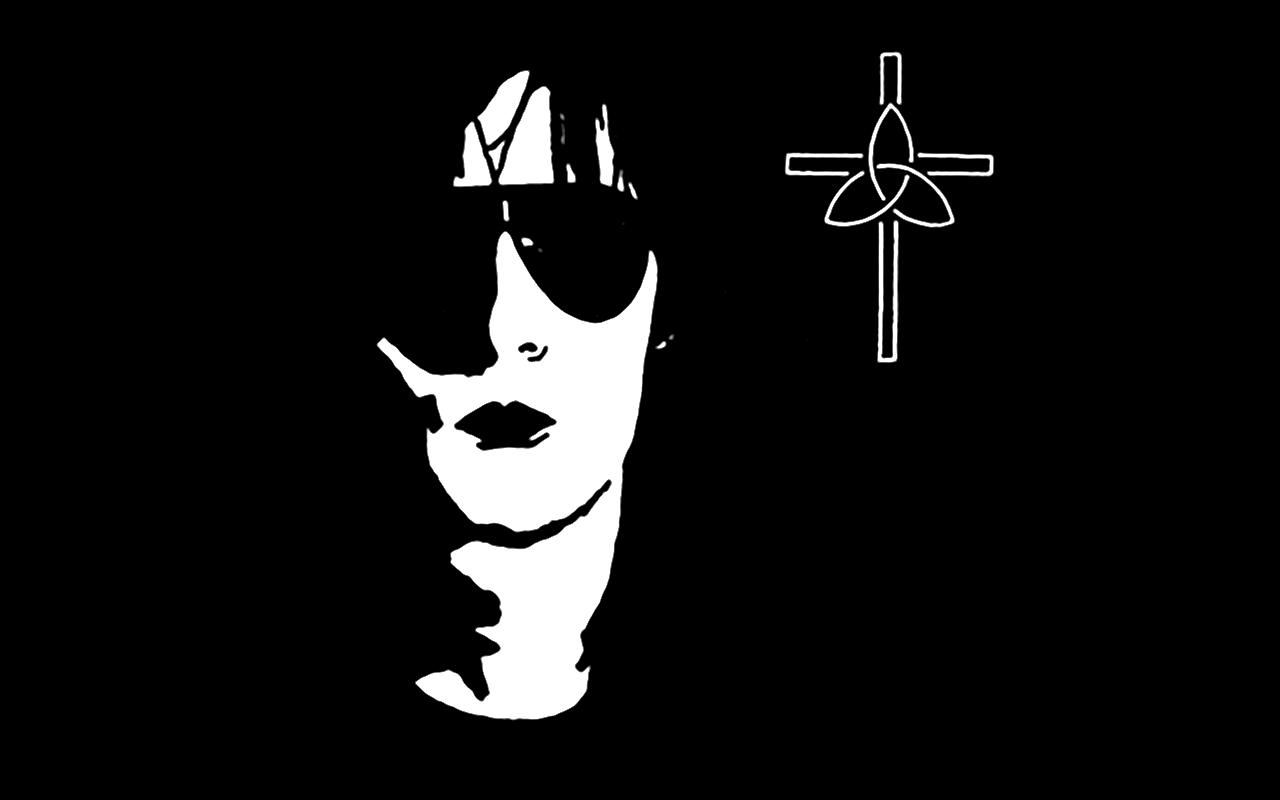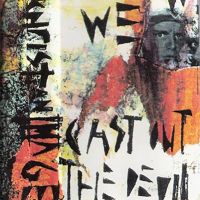Old-School Christian Goth & Industrial: The Children of Power, Christian Image, and New Society (Review)

At first glance, goth and industrial music, with their dark, aggressive, and gloomy sounds and fascination with dark lyrical subject matter, seem antithetical to Christianity. But just as Christians have seen fit to redeem black metal, it shouldn’t be too surprising that there’s a history of Christian artists doing the same with goth and industrial. (And I don’t need to point out that the Bible itself is filled with plenty of dark, troubling, and discomfiting material, e.g., Job, many of the Psalms, Ecclesiastes, Lamentations, do I?)
My introduction to all of this occurred back in the early ’90s with Christian industrial bands like Mortal, Circle of Dust, and globalWAVEsystem. Then in the late ’90s and early ’00s, I fell in with a group of Christian goths via the #velvetempire IRC channel and the Asylum tent at the Cornerstone festival, which led me to Engrave, Killing the Old Man, Sanctum, and similar artists. (Sidenote: This happened right around the time of the Columbine massacre. Suffice to say, there were a lot of interesting interactions at the Asylum tent at Cornerstone ’99.)
In recent years, I’ve felt a need to write about underground and niche Christian music as best I can, to make sure that those bands don’t permanently fade away into obscurity. When I began delving into “alternative” Christian music, there were very few resources to help with that. Most of the music I discovered was via word-of-mouth recommendations, magazines with uneven publishing schedules (7ball, anyone?), or simply perusing the shelves at the local Christian bookstore and buying whatever CDs looked cool or intriguing.
But countless other Christian bands fell through the cracks of history: they were never on a prominent Christian label like R.E.X. Music, Brainstorm, Alarma, or Tooth & Nail, they never got press in TrueTunes or Heaven’s Metal, and/or they didn’t release any music here in the States. Their legacies may be little more than a barebones Discogs page or random YouTube video. This seems particularly true for Christian goth and industrial acts like the ones below, which often seem as outré to Christian music as Christian music does to secular music.

Innocence by The Children of Power (Review)
Part of me thinks they could have achieved the same status that Dead Artist Syndrome and Lifesavers Underground now enjoy in Christian circles.
We Cast Out the Devil by Christian Image (Review)
There’s nevertheless something fascinating about the Belgian trio’s music, raw as it may be.
Endless Frontier by New Society (Review)
New Society’s songs possess the sort of candor and bluntness you find in much of Christian industrial music.
Why care so much about some obscure Christian acts from the late ’80s and early ’90s, acts that faded long ago and left little, if any, legacy? Well, as I wrote above, there’s precious little understanding of Christian music history — especially when it comes to various underground genres — and I’d like to do a little bit to counteract that.
It’s a shame that so many promising artists and releases have come and gone with ‘nary a word about their efforts, efforts that are all a part of the colorful, fascinating, and diverse world that was and is indie/underground Christian music.
But beyond that, I find albums like these inspirational, though not in the cheesy way that’s so often associated with Christian music. These days, Christian artists like Sufjan Stevens, Starflyer 59, and Woven Hand receive considerable acclaim regardless, and even because of, the expression of their faith through their music. But three decades ago?
Artists like The Children of Power, Christian Image, and New Society were making music that stood out from both the Christian and secular crowds — I suspect they were too dark and edgy for the former and, considering the upfront Christian nature of their lyrics, too church-y for the latter — and that sort of outsider ambition and conviction deserves some respect and recognition.
These releases, plus many more from the early days of Christian indie/alternative/punk music, can be purchased from Key Records.